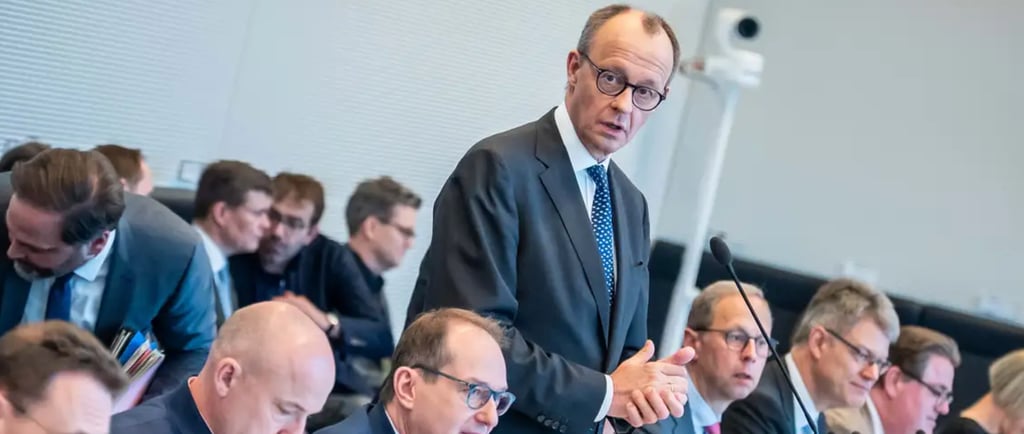Germany’s €1 Trillion Investment in Infrastructure and Defense: A Paradigm Shift in Fiscal Policy


Introduction
Germany, Europe’s largest economy, has embarked on a historic fiscal journey by approving a €1 trillion investment plan focused on infrastructure and defense over the next decade. This monumental decision signifies a departure from Germany’s traditional fiscal conservatism, aiming to rejuvenate its economy and address emerging geopolitical challenges.
The Shift from Austerity to Expansion
For decades, Germany has been synonymous with fiscal prudence, adhering to stringent debt brakes enshrined in its constitution. However, recent global events and internal economic assessments have prompted a reevaluation of this stance. The coalition government’s agreement to exempt defense spending from these debt constraints marks a pivotal shift towards a more flexible fiscal policy.
Infrastructure Revitalization: Building for the Future
A significant portion of the investment, approximately €500 billion, is earmarked for comprehensive infrastructure development. This includes modernizing transportation networks, upgrading digital infrastructure, and enhancing energy efficiency. Such initiatives are anticipated to bolster economic productivity, create employment opportunities, and position Germany as a leader in sustainable development.
Defense Expenditure: Responding to Geopolitical Realities
In light of evolving global security dynamics, Germany has committed to substantial defense spending. This move aims to strengthen national security, fulfill NATO obligations, and contribute to global stability. The decision reflects a broader recognition of the need for robust defense capabilities in an increasingly uncertain world.
Market Reactions: A Surge in Confidence
The announcement of the spending plan has had immediate positive effects on financial markets. Investor confidence has surged, leading to record highs in Germany’s stock market. The ZEW Institute’s economic sentiment index rose to 51.6 in March, reflecting renewed optimism about Germany’s economic prospects.
European and Global Implications
Germany’s fiscal expansion is expected to have ripple effects across Europe and beyond. The euro has strengthened against the dollar, and yields on German government bonds have risen, indicating increased investor appetite. This development may prompt other European nations to reconsider their fiscal policies, potentially leading to a broader shift towards growth-oriented strategies.
Opportunities for Investors and Traders
The expansive investment plan presents numerous opportunities for investors and traders:
• Equities: Construction, technology, and defense companies are poised to benefit from increased government contracts and investments.
• Bonds: The rise in government bond yields offers attractive options for fixed-income investors seeking stable returns.
• Currency Markets: The strengthening euro provides opportunities for currency traders to capitalize on favorable exchange rate movements.
Challenges and Considerations
While the investment plan is ambitious, it is not without challenges. Implementing such a vast array of projects requires efficient coordination, transparency, and effective management to prevent cost overruns and ensure timely completion. Additionally, balancing short-term economic stimulation with long-term fiscal sustainability will be crucial.
Conclusion
Germany’s €1 trillion investment in infrastructure and defense marks a transformative moment in its economic policy, signaling a shift towards proactive fiscal expansion. This strategy aims to modernize the nation’s infrastructure, enhance defense capabilities, and stimulate economic growth. As the plan unfolds, its success will depend on meticulous execution and the ability to adapt to evolving economic landscapes.


